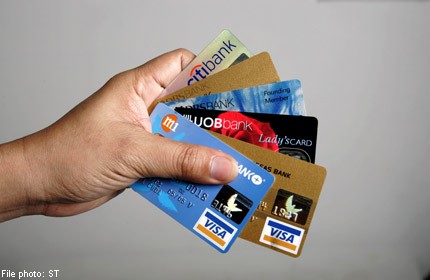Tighter rules on credit cards soon

Singapore announced new rules yesterday to cap credit-card and other forms of unsecured lending by banks. This is amid growing concerns about rising household debt in Asia by consumers once known for their thrift.
Asia has seen consumer debt levels rise sharply in recent years due to low interest rates and aggressive lending by banks.
For Singapore, the ratio of household debt to gross domestic product now stands at around 75 per cent, up from 55 per cent in 2010 and 45 per cent in 2005, according to data compiled by Standard Chartered.
"The rise in household debt is a fairly generic trend across Asia," said Ms Selena Ling, head of treasury research at OCBC. "From a macro-prudential point of view, you'd want to mitigate the increase in household debt, particularly with respect to unsecured loans."
Singapore has already taken steps to cap borrowing for property purchases.
The changes to the rules on unsecured lending will be implemented in stages from Dec 1, and they include limiting the total amount of unsecured loans an individual can take to 12 times that person's monthly income.
The changes are "aimed at improving lending practices by financial institutions and enabling individuals to make better borrowing decisions", the Monetary Authority of Singapore said.
Currently, it is relatively easy for banks to issue credit cards in Singapore, with lenders such as Citibank advertising that they are able to do so within 24 hours of receiving an application.
But with the new rules, banks will be required to review a borrower's total debt and credit limits before granting a new credit card or unsecured credit facility.
Banks must also carry out such reviews before increasing the credit limit on such facilities, the central bank said.